
Are you an animal lover?
If so, today is your lucky day!
In this article, we’ll teach you the names of different animals in the Turkish language. We have divided the animals by category as follows:
- Pets
- Farm animals
- Wild animals
- Sea animals
- Bugs and insects
- Birds
- Reptiles and amphibians
In addition, we’ll teach you what to call the body parts of animals, some relevant verbs, and even a few interesting idioms that mention animals.
But first things first: The word for “animal” in Turkish is hayvan.
The fact that the Turkish word is totally different from its English counterpart might have scared you, but don’t worry! Many animal names are written identically in Turkish as they are in English. For example: hamster, iguana, jaguar, koala, panda, tarantula, and zebra.
There are also some animals whose Turkish spelling is very close to its English spelling. Are you ready for a test? Let’s see if you can guess which animals these are: leopar, panter, pelikan, penguen, pirana, and piton.
I bet you passed the test. But just in case, here are the answers: leopard, panther, pelican, penguin, piranha, and python.
Now, it’s time to move ahead to our list of animal names in Turkish!
 Table of Contents
Table of Contents
- Pets (Evcil Hayvanlar)
- Farm Animals (Çiftlik Hayvanları)
- Wild Animals (Vahşi Hayvanlar)
- Sea Animals (Deniz Hayvanları)
- Bugs & Insects (Böcekler & Haşarat)
- Birds
- Reptiles & Amphibians
- Body Parts of Animals
- Animal-Related Idioms and Slang Expressions
- Animal-Related Verbs
- Learn More About the Turkish Language with TurkishClass101
1. Pets (Evcil Hayvanlar)
The most popular pet animals in Turkey are cats, dogs, birds, and fish. There are also some families that prefer to have hamsters, turtles, or rabbits at home.
Here are the names of some common pets in Turkish:
| Turkish | English |
| Balık | “Fish” |
| Hamster | “Hamster” |
| Kaplumbağa | “Turtle” |
| Kedi | “Cat” |
| Köpek | “Dog” |
| Kuş | “Bird” |
| Tavşan | “Rabbit” |
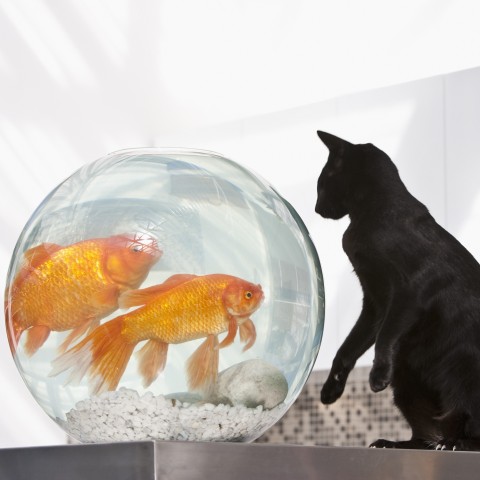
2. Farm Animals (Çiftlik Hayvanları)
Like other countries, Turkey is home to a range of farm animals. They are bred for their meat, milk, eggs, skin, and wool. Most of the livestock in Turkey can be found in the Aegean and Marmara regions, as well as in Central and Eastern Anatolia.
Here are the names of common farm animals in Turkish:
| Turkish | English |
| At | “Horse” |
| Domuz | “Pig” |
| Eşek | “Donkey” |
| Horoz | “Rooster” |
| İnek | “Cow” |
| Kaz | “Goose” |
| Keçi | “Goat” |
| Koyun | “Sheep” |
| Kuzu | “Lamb” |
| Ördek | “Duck” |
| Tavuk | “Chicken” |
3. Wild Animals (Vahşi Hayvanlar)
Below are the names of wild animals that we most often find in zoos. However, I’m sure that some people get to see them in the highlands, woods, or rural areas.
| Turkish | English |
| Aslan | “Lion” |
| Ayı | “Bear” |
| Fil | “Elephant” |
| Geyik | “Deer” |
| Kaplan | “Tiger” |
| Kurt | “Wolf” |
| Leopar | “Leopard” |
| Maymun | “Monkey” |
| Tilki | “Fox” |
| Zebra | “Zebra” |
| Zürafa | “Giraffe” |
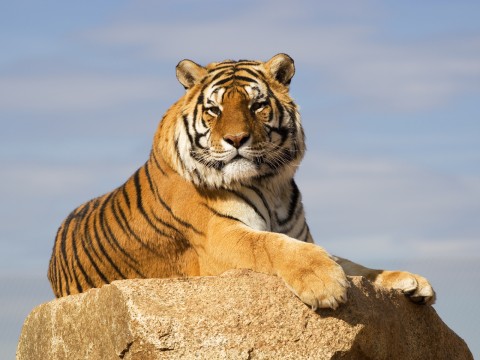
4. Sea Animals (Deniz Hayvanları)
Turkey is surrounded by seawater on its three sides and has around 8333 kilometers (5178 miles) of shoreline. Due to the country’s geographic location, we have a booming fishing industry! 200 fish species live in the Sea of Marmara, 247 in the Black Sea, 300 in the Aegean Sea, and 500 in the Mediterranean. Of these, about 100 fish species are of particular economic value for Turkey.
Let’s see some of the sea animal names in Turkish:
| Turkish | English |
| Ahtapot | “Octopus” |
| Balina | “Whale” |
| Deniz atı | “Seahorse” |
| Istakoz | “Lobster” |
| Karides | “Shrimp” |
| Köpek balığı | “Shark” |
| Yengeç | “Crab” |
| Yunus | “Dolphin” |
5. Bugs & Insects (Böcekler & Haşarat)
While insects are not within the scope of my expertise, I did a little research on the topic before writing this article. I learned that there’s a bug museum in Istanbul where a range of different bugs have been preserved and kept on display since 1937. If you’re interested in bugs, you might want to check out the museum if you ever get the chance to visit Turkey!
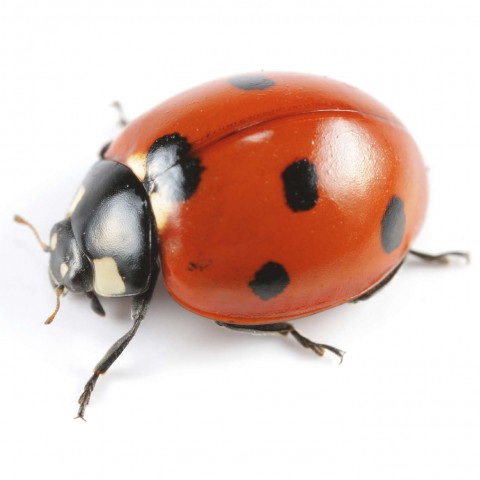
Now, let’s learn the Turkish words for the most common bugs and insects:
| Turkish | English |
| Arı | “Bee” |
| Ateş böceği | “Firefly” |
| Çekirge | “Grasshopper” |
| İpek böceği | “Silk worm” |
| Karınca | “Ant” |
| Kelebek | “Butterfly” |
| Sinek | “Fly” |
| Sivrisinek | “Mosquito” |
| Örümcek | “Spider” |
| Uğur böceği | “Ladybug” |
6. Birds
Turkey’s different climate zones are suitable for the survival of many different species of birds. There are about 515 bird species in Turkey, and about a quarter of them are migratory birds that arrive in Turkey during the winter months.
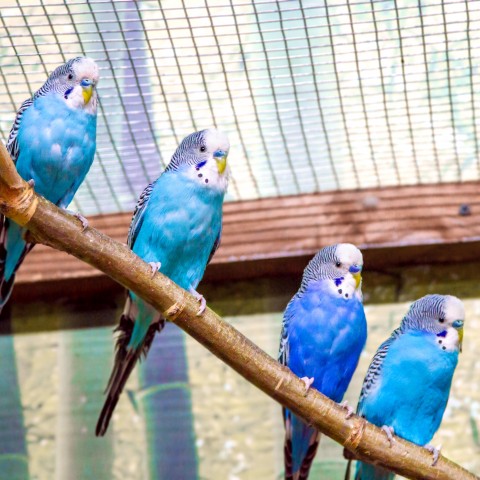
Here are the Turkish names for the most popular birds:
| Turkish | English |
| Ağaç kakan | “Woodpecker” |
| Baykuş | “Owl” |
| Güvercin | “Dove” |
| Karga | “Crow” |
| Kartal | “Eagle” |
| Kumru | “Pigeon” |
| Martı | “Seagull” |
| Papağan | “Parrot” |
7. Reptiles & Amphibians
I’m learning more and more as I go! Did you know there are 120 reptile species in Turkey?
One popular example is the Caretta Carettas sea turtles, which make their home in Iztuzu Beach in Dalyan. Because they’re in danger of extinction, the beach is under protection. It’s closed at certain hours, May through August, during which period the sea turtles lay their eggs. You can visit the Caretta Carettas without approaching their conservation areas. It’s a unique experience!
Below are the names of some reptiles in Turkish:
| Turkish | English |
| Bukalemun | “Chameleon” |
| Kertenkele | “Lizard” |
| Kurbağa | “Frog” |
| Timsah | “Crocodile” |
| Yılan | “Snake” |
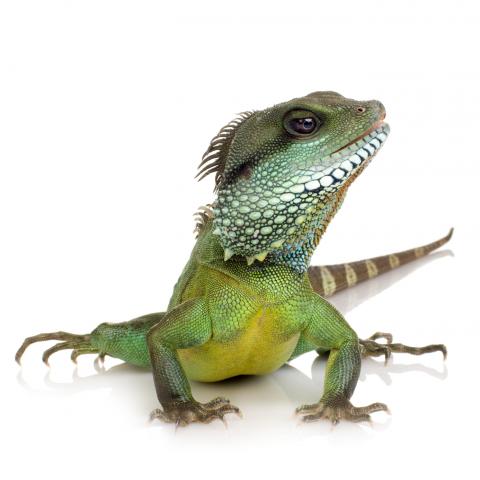
8. Body Parts of Animals
Now that you know several Turkish animal names, you should learn what to call their unique body parts. This will be especially helpful if you have a pet of your own or if you’d like to describe a recent animal encounter!
| Turkish | English |
| Boynuz | “Horn” |
| Filin hortumu | “Trunk” |
| Gaga | “Beak” |
| Kanat | “Wing” |
| Kuş tüyü | “Feather” |
| Kuyruk | “Tail” |
| Kürk | “Fur” |
| Pati | “Paw” |
| Pençe | “Claw” |
9. Animal-Related Idioms and Slang Expressions
This is the part I love. I enjoy learning the idioms and slang expressions of foreign languages, and I always find it interesting how different languages come up with their own unique idioms.
I’m curious if you’ll also find the following Turkish idioms and slang terms interesting, creative, and fun. Make sure to let us know your favorite one(s) in the comments!
| Turkish | Literally | English Equivalent |
| İnek | İnek means “cow.” However, Turkish people also call asocial, hardworking students inek. | Nerd |
| Kuş beyinli | It’s translated as “bird-brained,” and it’s used in reference to stupid people. | Bird-brain |
| Devede kulak | This one is translated as “ear on the camel.” It refers to a very small part/amount of something. | A drop in the bucket |
| Keçi gibi inatçı | It’s translated as “stubborn as a goat.” As it implies, it’s used in reference to people who are very persistent. | Stubborn as a mule |
| Tilki gibi kurnaz | It’s translated as “cunning as a fox.” It refers to shrewd people. | Cunning as a fox |
| Besle kargayı oysun gözünü | It’s translated as “Feed the crow, and he will carve your eyes.” It refers to a situation where someone helps you, and then you hurt them in return. In other words, a situation where you are ungrateful for the help you’ve received. | Bite the hand that feeds you |
| Dut yemiş bülbüle dönmek | It’s translated as “to become a nightingale who has eaten a mulberry.” It means to be silent or speechless. | To be tongue-tied |
| Keçileri kaçırmak | It’s translated as “slipping the goats.” It refers to losing one’s mind. | Lose one’s mind |
| Kedi köpek gibi kavga etmek | This one means “to fight like a cat and a dog.” You get the idea. | Go at each other tooth and nail |
| Kurt gibi acıkmak | It’s translated as “to be hungry as a wolf.” | To be as hungry as a horse |
| Tavşana kaç, tazıya tut demek | This one means “to say ‘run away’ to the rabbit and to catch the greyhound.” It refers to acting hypocritically. In other words, to speak or act differently depending on who you’re around. | Run with the hares and hunt with the hounds |
| Sudan çıkmış balık gibi olmak | It’s translated as “to be like a fish out of water.” It means that you’re uncomfortable or nervous in a new environment. | To be like a fish out of water |
10. Animal-Related Verbs
Finally, let’s look at some useful verbs that are related to animals:
| Turkish | English |
| Aşılamak | “To vaccinate” |
| Beslemek | “To feed” |
| Dörtnala koşmak | “To gallop” |
| Eğitmek | “To train” |
| Evcilleştirmek | “To tame” |
| Havlamak | “To bark” |
| Isırmak | “To bite” |
| Kişnemek | “To neigh” |
| Kükremek | “To roar” |
| Miyavlamak | “To meow” |
| Sevmek/okşamak | “To pet” |
| Tırmalamak | “To claw” |
| Vızıldamak | “To buzz” |
| Yalamak | “To lick” |
You can also visit our website to learn the sounds that animals make in Turkish!
11. Learn More About the Turkish Language with TurkishClass101
You now have a sizable Turkish animal vocabulary list you can refer back to anytime. Did we forget to include the name of your favorite animal? Please let us know in the comments, and we’ll get back to you!
To continue learning Turkish and improving your skills, create your free lifetime account today on TurkishClass101.com. Start benefiting from our numerous video and audio lessons, vocabulary lists, blog posts, and other free resources, and never look back! Our Premium PLUS students also have access to our MyTeacher service, which allows you to study and practice 1-on-1 with your own private teacher. What’s more, you can download the app for free and start studying wherever you are.
Last but not least, please continue to provide us with feedback about all the resources provided at TurkishClass101.com!










